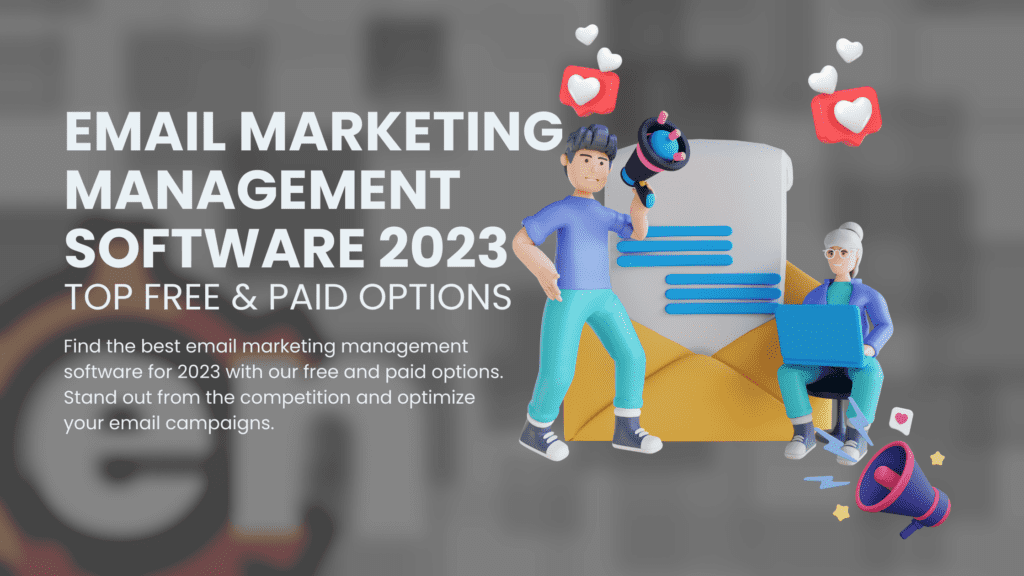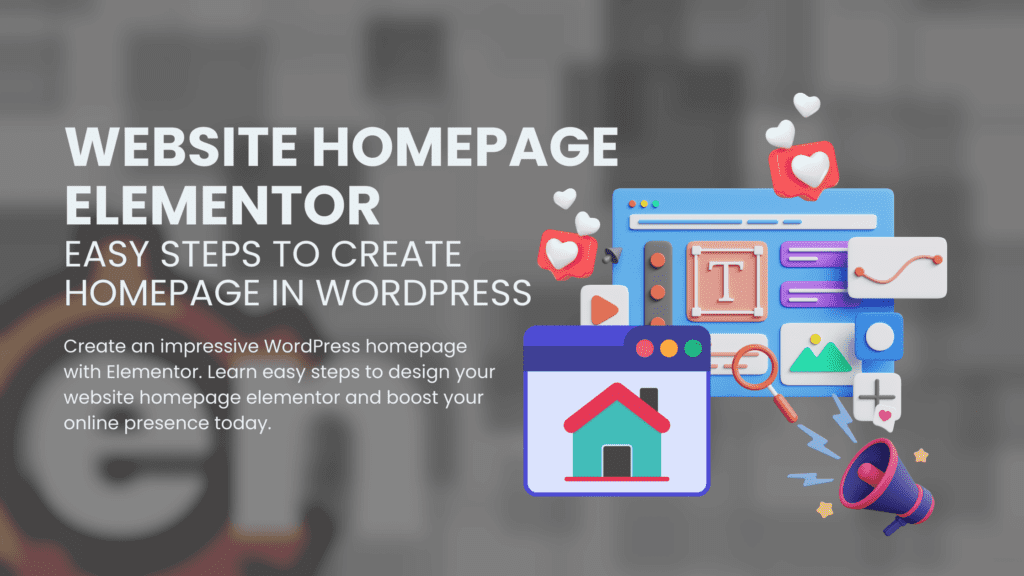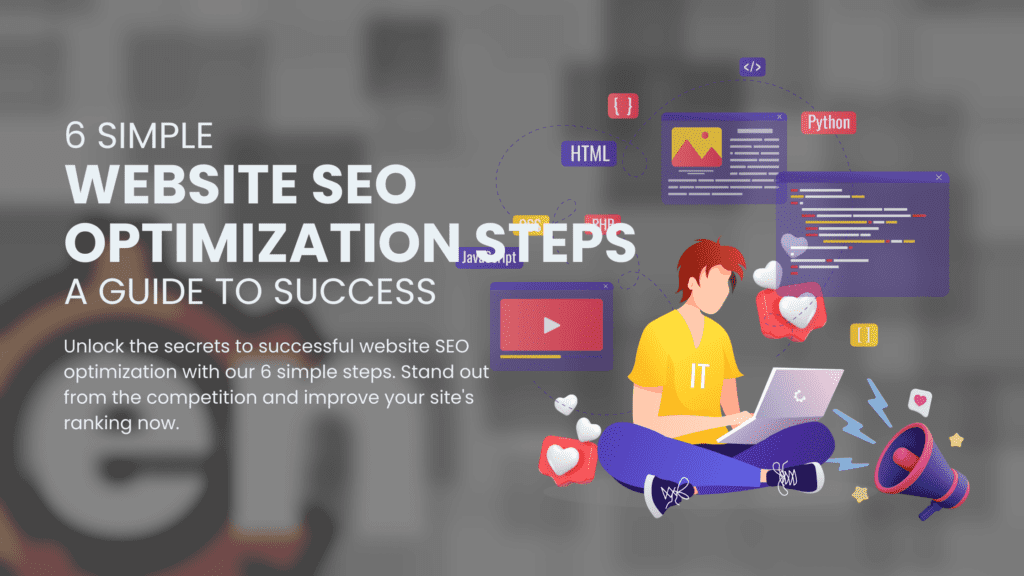
Optimizing your website for higher search engine rankings is called SEO. This involves adjusting your website’s content and structure to make it more relevant to your target audience’s search queries.
Make your website relevant to what people search for to improve your SEO. This can get you more visibility, traffic, and potential customers.
Investing in website SEO optimization is a smart move for long-term gains in organic search traffic. Just keep in mind that it takes consistent effort and monitoring to maintain and improve rankings.
Prioritizing website SEO optimization is crucial for your website to compete and gain organic search traffic. Don’t miss out on valuable opportunities in your industry. Make SEO a part of your digital marketing strategy.
Conduct Keyword Research for Website SEO Optimization
To succeed in SEO, start with keyword research. This involves finding the most valuable and relevant keywords to use in your website’s content. By knowing what your target audience is searching for, you can improve your website’s visibility and attract more organic traffic.
To conduct effective keyword research, prioritize short-tail and long-tail keywords. Short-tail keywords are broad and only one or two words, while long-tail keywords are more specific and consist of three or more words. Each type has its pros and cons.
Short-tail keywords have high search volume but are highly competitive. Long-tail keywords have lower search volume but are less competitive, making it easier to rank and attract targeted traffic.
To conduct effective keyword research, consider related keywords and synonyms in addition to short and long-tail keywords. Related keywords are closely associated with your main keyword, while synonyms have similar meanings.
By including related keywords and synonyms in your content, you can help Google understand the context of your page better. This can improve your chances of ranking for a wider range of search queries.
Incorporating your keyword research into your website’s content in a natural and strategic manner is crucial for achieving results. However, be careful not to overuse or repeat the same keyword multiple times in a piece of content, as this may lead to penalties from Google.
Instead, aim for using each main keyword once per 100-200 words while incorporating related keywords naturally throughout the text where possible.
Structured data is crucial in website SEO optimization. It’s a code that helps search engines understand your website’s content. Adding structured data can improve your search marketing and increase your chances of appearing in rich results. Rich results have additional information like images, reviews, and ratings. They boost click-through rates and attract more organic traffic to your site.
To improve your website’s search visibility, track progress, and refine strategy through keyword research. Continuously analyze search engine results and metrics to identify new website SEO optimization opportunities.
Optimize Website Content for SEO
To optimize your website for SEO, create quality content that is relevant and valuable to your target audience. Avoid keyword stuffing, as it can result in search engine penalties. Instead, use keywords naturally throughout your content.
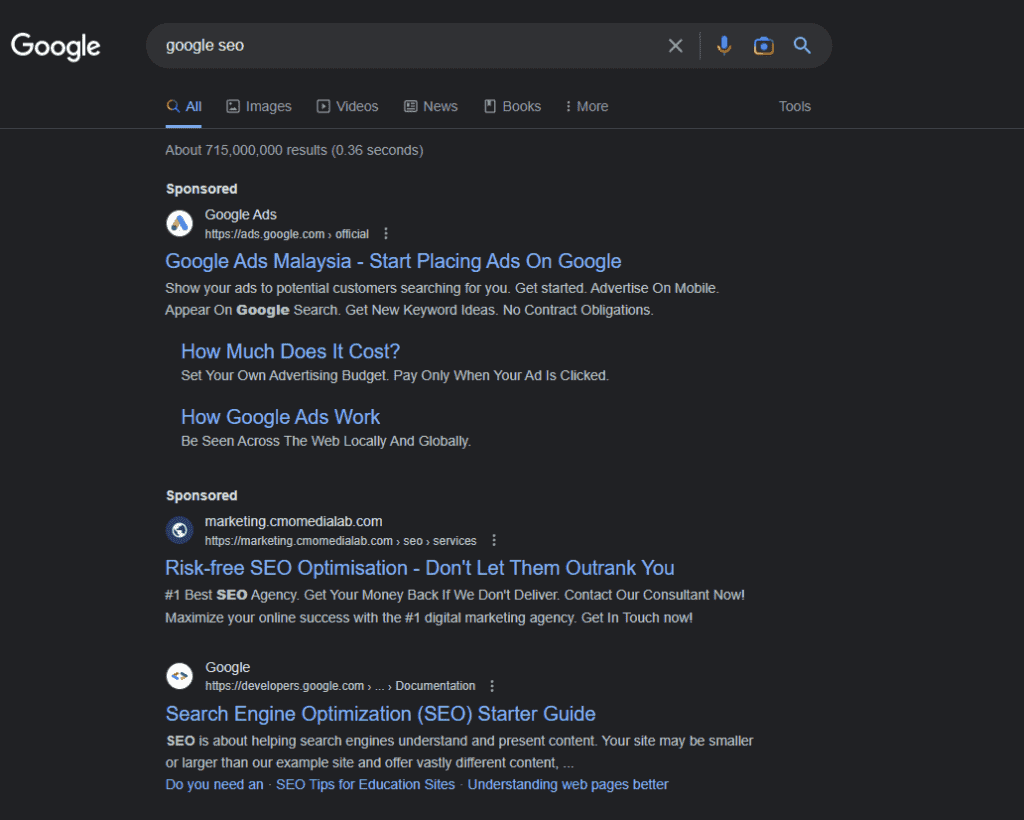
To succeed in SEO, technical optimization is crucial. Optimize your website’s page titles, meta descriptions, header tags, and use schema markup. This helps search engines understand your website’s structure and content.
As a website owner, you can take control of your site’s optimization through DIY website SEO optimization. Use tools like Rank Math or Google Search Console to monitor performance and identify areas for improvement. Analyze data on click-through rates, impressions, and search result positions to inform decisions on how to improve visibility.
Website SEO optimization for local search is vital for businesses with a physical location. Include your business name, address, and phone number on your website and online directories to help potential customers find you when searching locally.
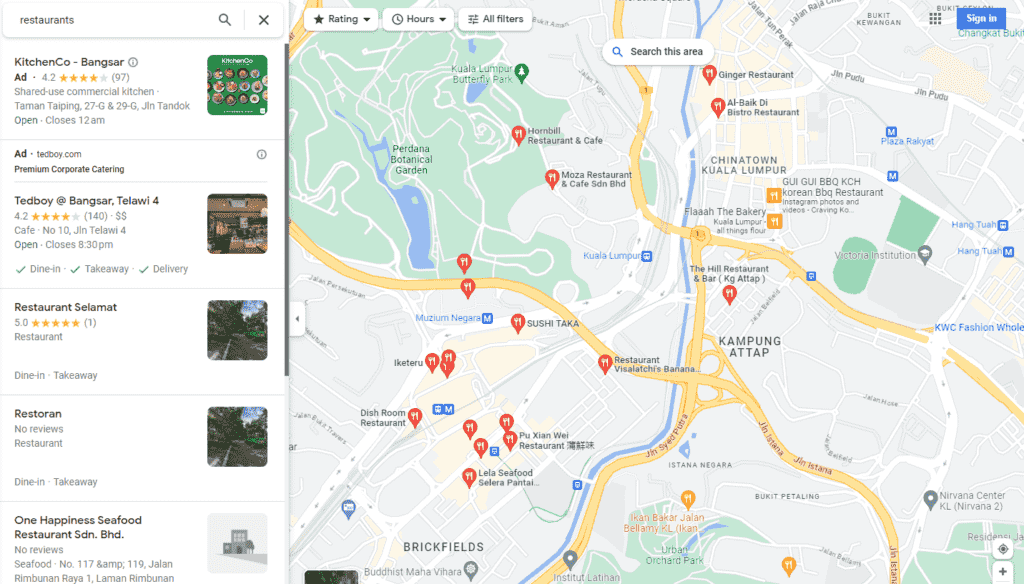
Regularly adding fresh content like blog posts, articles, videos, and infographics can boost your website’s SEO. But, be careful not to use duplicate content as it can damage your search result rankings.
Making an XML sitemap improves optimization by helping search engines crawl and index your site better. This boosts visibility and drives more traffic to your website.
Improve Site Navigation and User Experience for Better SEO Results
Enhance User Experience by Simplifying Site Navigation
To improve your website SEO optimization, focus on enhancing user experience. A well-organized website with clear navigation helps users find what they need easily and quickly. This keeps visitors on your site longer, reducing bounce rates and improving SEO rankings.
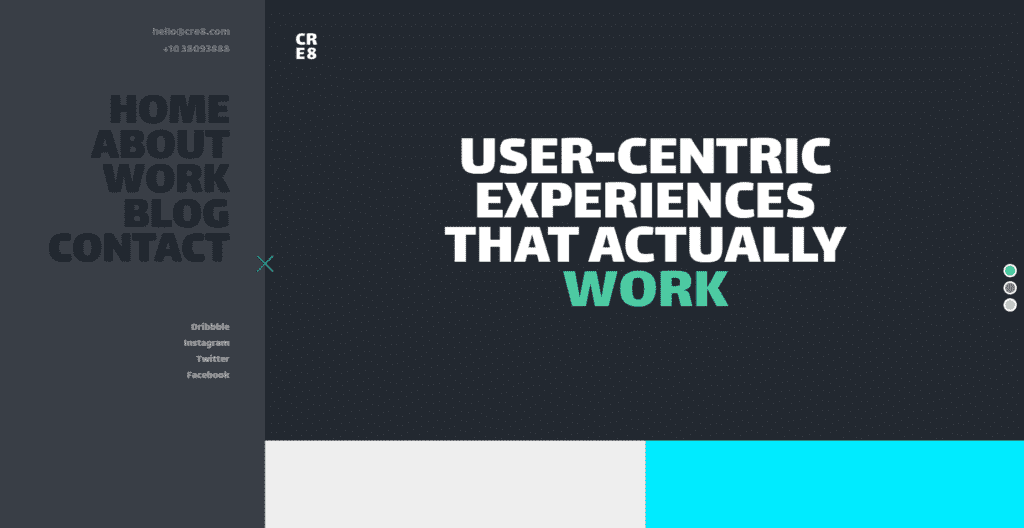
Organize your website content into customer-friendly categories with clear names and descriptions. Use simple language to avoid confusing users with technical jargon or industry-specific terms.
To improve site navigation, try drop-down menus or breadcrumbs. They let users move between pages easily, without backtracking or using the browser’s back button.
Optimize Your Root Page and Sitemap for Search Results Page Visibility
Optimizing your root page and sitemap boosts your chances of appearing higher in search results, making it easier for users to find your site.
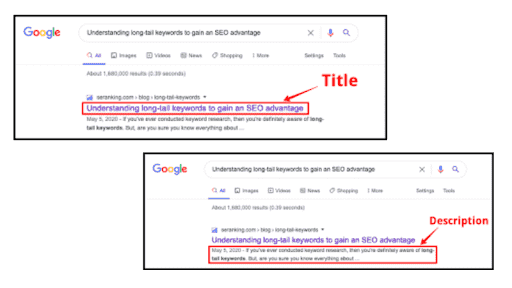
To improve your root page, use relevant keywords in the title tag and meta description. These elements show up in search results and should accurately represent your content and attract users to click.
Include links to all major sections on your root page for efficient crawling and indexing by search engines, resulting in improved visibility on SERPs.
To optimize your sitemap, make sure it accurately reflects your site’s structure and includes all relevant pages. Submitting it to Google Search Console ensures proper indexing.
Use Redirects To Help Users Find Other Pages on Your Site
Using redirects improves user experience and site structure, leading to better SEO results.
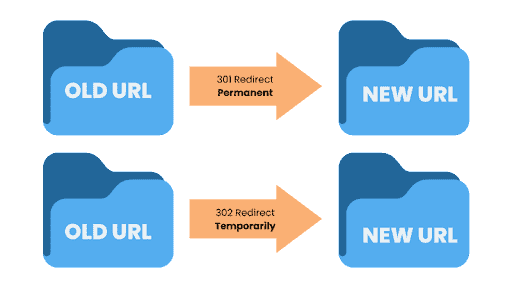
To redirect a page, use the appropriate type based on the situation. A 301 redirect indicates a permanent move to a new location and prompts search engines to update their index accordingly.
Use a 302 redirect for temporary changes. It tells search engines to index the original URL but redirects users to a different page for now.
Use a canonical redirect when there are multiple page versions with different URLs. Specify the preferred version to avoid duplicate content issues and improve SEO rankings.
Utilize Meta Title Tags and Descriptions for Improved SEO
Optimizing meta title tags and descriptions is vital for website SEO optimization. They summarize page content for search engines and users, improving visibility in search results by including relevant keywords.
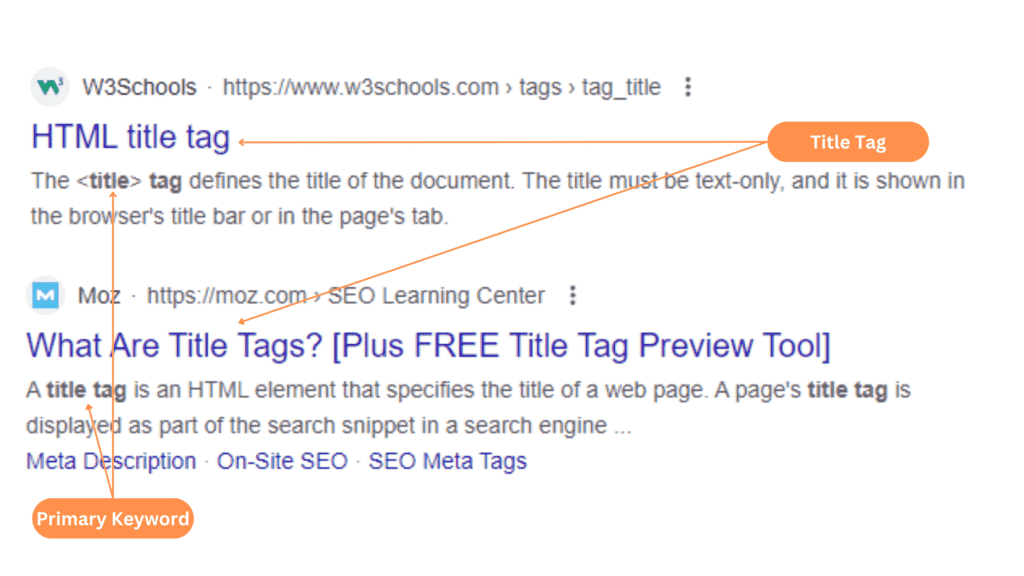
Meta Title Tags
The meta title tag is an important HTML element that displays as the clickable headline in search engine results pages and browser tabs. It must contain relevant keywords and accurately describe the page’s content.
Keep your meta titles short and clear, ideally under 60 characters. Longer titles can be truncated in search results, causing confusion for users about your page’s content.
Use relevant keywords in your meta titles. But be careful not to stuff too many keywords as it could result in Google penalties.
Meta Descriptions
Make your meta description tag concise and under 155 characters so it appears fully on the search engine results page below the title tag.
Including relevant keywords in your meta descriptions can boost your website’s ranking on SERPs. But, avoid keyword stuffing to prevent Google penalties.
Ensure your meta description is concise and informative. It should entice users to click through to your site and include a clear call-to-action (CTA).
Semantic Markup
By using HTML tags like H1-H6, lists, tables, and other elements, we can provide context for search engines about the content of each webpage. This is known as semantic markup, and it helps search engines understand the webpage’s topic and improve its ranking potential.
Header tags show the most important parts of a webpage. Use H1 for the main title and H2/H3 for subheadings.
Alt Text for Images
Alt text is important for images that cannot be displayed and improve their ranking potential on search engines.
When writing alt text, use descriptive and specific terms related to the image. Avoid generic terms like “image” or “photo.”
Including Additional Information in Meta Descriptions
Adding more details to your meta descriptions can boost click-through rates for search engine ads. For instance, including location info in a restaurant’s meta description can lure nearby customers.
You can also include terms related to the topic of your webpage to help users better understand what they’ll find on your site.
Build Quality Backlinks for Better SEO Results
To boost your website’s visibility on search engines, you need quality backlinks. These links come from other websites and show the relevance and authority of your content. The more quality backlinks you have, the higher your website will rank in search results.
Internal Links: Building Quality Backlinks From Within Your Website
To improve your website’s backlinks, try using internal links. This means linking pages within your own site. Doing so helps search engines better understand your website’s layout and connections between pages.
When linking within your website, use descriptive anchor text and ensure the title link and URL match the page’s content.
External Links: Focus On Quality Over Quantity
To build quality backlinks, internal links are not sufficient. External links from other websites pointing toward yours are also necessary.
To improve your website SEO optimization, prioritize quality over quantity when building external links. A couple of high-quality links from reputable sites will have a bigger impact than numerous low-quality links.
To begin external link-building, connect with other businesses in your field or create shareable content like infographics or blog posts for others to link back to.
Descriptive Anchor Text: Make Sure Your Links Are Relevant
To create effective links, use descriptive anchor text. Anchor text is the clickable text that appears as a hyperlink.
Using descriptive anchor text helps search engines and users understand linked content better.
Technical Setup: Ensure Your Website Is Optimized For Link Building
Optimizing your website’s technical setup is crucial for successful link building. This involves ensuring a user-friendly and search engine-friendly website structure.
Create a sitemap. It lists all your website pages, helps search engines understand your site’s structure, and how pages relate to each other.
Make your URLs simple and readable. Avoid using lengthy strings of numbers or special characters as they can confuse both search engines and users.
Nofollow Links: Avoid Using Them
Avoid using nofollow links for backlink building since they do not pass any SEO value and instruct search engines not to follow them.
To avoid potential issues, it’s better to use regular links rather than nofollow links, unless you are linking out to untrusted sources.
Use Social Media to Boost SEO Ranking
Social media is now essential in our daily lives and businesses can benefit from it too. It can help them reach their target audience and improve their online presence by boosting their SEO ranking.
Driving Traffic and Increasing Engagement
Utilizing social media can boost your website’s search ranking. By driving traffic and engagement, social media can attract potential customers to your site. As engagement increases, search engines recognize your website as popular and relevant, leading to a positive impact on your SEO ranking.
Building Reputation and Authority
Posting quality content on social media can boost your online reputation and authority, leading to better SEO ranking. Establishing yourself as an industry expert on social media builds trust with potential customers searching for related products or services.
Local Business Visibility
As a local business, being active on social media can attract customers and improve visibility in local search results. Use location-based hashtags or keywords in posts to increase your chances of appearing in search results for nearby products or services.
Using Relevant Keywords
To boost your social media presence, use keywords and hashtags that match your business and target audience. Relevant keywords make it easier for potential customers to find you on platforms like Twitter and Instagram.
Including Links Back To Your Website
Include links to your website in social media posts to improve SEO ranking and drive traffic. These links signal to search engines that your website is valuable, increasing its credibility.
Examples of Social Media Boosting SEO Ranking
Social media can boost SEO ranking. Studies by Hootsuite and Moz show that websites with active social media accounts have better search engine rankings and a positive correlation between social signals and higher rankings.
Businesses have found success using social media to improve their SEO ranking. A New York City pizza restaurant used Facebook ads to target locals searching for pizza delivery and saw increased online visibility and sales.
Monitor and Analyze SEO Performance Regularly
Track Website Performance Metrics Regularly
Regularly monitoring and analyzing your website’s performance metrics such as page load time, bounce rate, and click-through rate helps keep it optimized and up-to-date with the latest SEO best practices. By identifying areas for improvement, you can take action to optimize your site.
Page Load Time
Having a fast page load time is crucial for user experience and search engine ranking. If your website takes too long to load, users may leave before seeing your content. Research reveals that 47% of consumers expect a web page to load in two seconds or less.
Google considers page speed as a ranking factor. Slow-loading websites may harm your search engine rankings.
Bounce Rate
A high bounce rate means visitors are leaving your website after seeing just one page, which suggests they can’t find what they want or are struggling to navigate.
A high bounce rate hurts your search engine rankings because it means users aren’t engaging with your content. Keep an eye on your bounce rates to find areas where you need to improve user engagement.
Click-Through Rate (CTR)
CTR is crucial as it shows the percentage of users who clicked on a link compared to the total impressions. This metric measures the relevance of your content and how well it resonates with users.
Improve your content’s relevance and engagement by analyzing your CTR regularly. A low CTR may mean your content isn’t compelling or you’re targeting the wrong audience.
Mobile Responsiveness
Optimizing your website for mobile is crucial as over 50% of internet traffic comes from mobile devices. Mobile responsiveness is important for how well your site adapts to different screen sizes and resolutions.
Website SEO optimization for mobile is crucial to avoid bad user experience, high bounce rates, and low search engine rankings. Regularly monitoring and analyzing mobile responsiveness can help you identify areas for improving user experience.
Regularly analyzing your website’s search engine ranking positions (SERPs) is crucial in monitoring and analyzing SEO performance. SERPs are the pages where your website appears in search engine results for specific keywords or phrases.
Regular SERP tracking helps you identify trends and optimization opportunities. For instance, you can optimize pages that consistently rank higher than others.
Use SEM Tools
It’s crucial to use SEM (Search Engine Marketing) tools like Ahrefs or SEMrush to track keyword rankings, backlinks, and other metrics. These tools give insights into how your website fares against competitors besides monitoring SERPs.
Regularly use these tools to stay ahead of the competition, identify areas for improvement, and monitor the effectiveness of implemented SEO strategies.
Assign a Team Member or Hire an SEO Specialist
It’s crucial to have someone in charge of monitoring and analyzing your website’s performance. This person should track metrics like page load time, bounce rate, CTRs, mobile responsiveness, SERPs rankings, and use SEM tools.
Hiring an SEO expert, either within or outside your organization, ensures regular monitoring and optimization of your website’s performance.
Best Practices for Improving Website Ranking in Search Engines
Keyword research is crucial for improving website ranking in search engines. It identifies relevant and high-traffic keywords to boost your website’s organic search rankings. Choose the right keywords that are relevant to your business and target audience.
Optimizing your web pages with on-page SEO best practices is crucial. Use relevant keywords in title tags, meta descriptions, header tags, and content. Make sure title tags are descriptive and contain the primary keyword. Meta descriptions should be compelling and have a call-to-action (CTA).
To structure content on a page, use header tags. Use H1 tags for main headings and H2-H6 tags for subheadings. Ensure content has relevant keywords but avoid keyword stuffing, which can harm your website’s ranking.
You should use Google Search Console to monitor your website’s performance and find technical issues that could affect your rankings. This tool shows how Google crawls and indexes your site and warns you of any errors or issues.
[Image 2: [A person analyzing data on Google Search Console and Rank Math dashboard.] Alt text: Individual using Google Search Console and Rank Math for website SEO optimization]
To improve website ranking in search engines, it’s important to create high-quality, informative, and engaging content. This tells search engines what your website is about and provides value to your target audience. Creating long-form content with more than 3,000 words is a good practice as it tends to rank higher in SERPs.
Building high-quality backlinks from reputable websites can improve your website’s authority and credibility in the eyes of search engines. Backlinks act as “votes” of confidence in your site’s quality and relevance.
Boost your site’s traffic by using Google Ads to place ads at the top of search results pages. But remember, don’t rely solely on Google Ads for traffic. Organic search traffic is more sustainable and can benefit your website’s ranking in the long term.
Using Elementor and Rank Math to Enhance SEO for WordPress Websites
Optimizing your website for SEO is vital to increase online visibility and drive more traffic. Conduct keyword research, optimize website content, improve user experience, use meta tags and descriptions, build quality backlinks, utilize social media, and monitor performance regularly to achieve better search engine rankings.
Elementor and Rank Math are two standout tools to optimize WordPress websites.
Elementor is a powerful page builder that lets you create visually stunning pages without coding. It has design elements that can improve user experience and built-in features like mobile responsiveness and fast loading speeds, which are crucial for SEO.
Optimize your website’s content for search engines with Rank Math. Get detailed recommendations for improving each page or post. Manage all aspects of your website’s SEO with advanced features like schema markup implementation and redirection manager.
Elevate your website’s SEO with Elementor and Rank Math. Create attractive pages and optimize them for search engines. These tools will help you rank higher in SERPs and increase website traffic.

